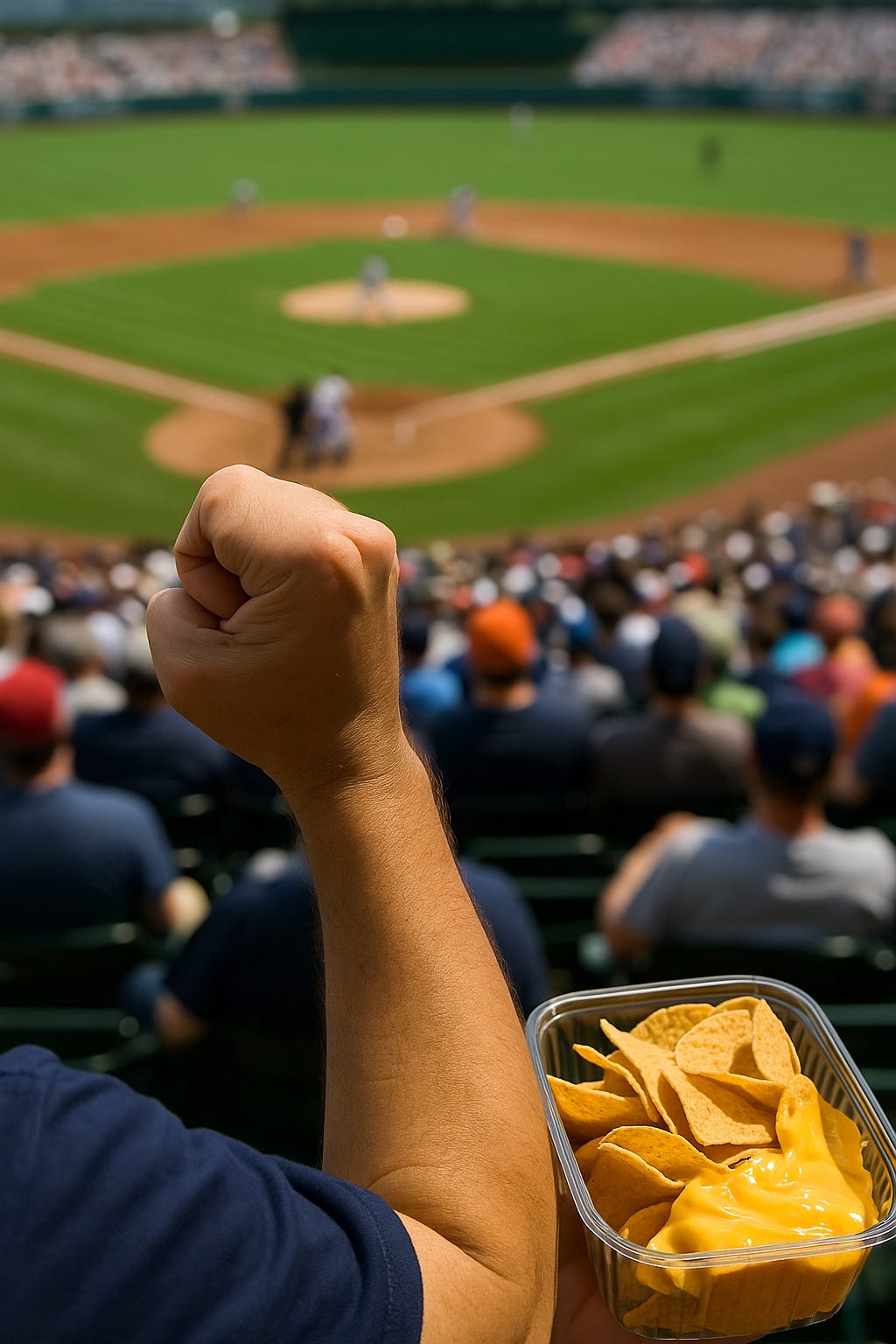Tribalism: Yesterday’s Lifeboat, Today’s Anchor
Civilization requires a more thoughtful population to progress and thrive
Tribalism: Yesterday’s Lifeboat, Today’s Anchor
By Jim Reynolds | www.reynolds.com
For most of human history, tribalism wasn’t a flaw — it was the key to survival. A lone hunter with a stick didn’t stand much chance against predators or rival clans. A tribe did. Loyalty to the group was more important than logic, because exile meant death. And that ancient wiring is still with us today, tugging at our emotions in ways we barely recognize.
Bob: “The dumbest superstition in the world beats the smartest idea outside the tribe.”
The Long History of the Tribe
Anthropologists estimate that humans have lived in organized, law-based societies for maybe 5,000 years. But we’ve walked the earth for 200,000. That means tribal loyalty ruled for 97% of our history. When life was short and brutal, it made sense to stick with the group, even if the group was wrong. Evolution didn’t reward truth-tellers; it rewarded conformists.
And you can still feel that instinct. Sit in a stadium, a high school gym, or even a little league bleacher. Who hasn’t shouted themselves hoarse rooting for the home team, while jeering the rival? That adrenaline surge isn’t about rational outcomes. It’s the ancient tribal code firing — the same force that keeps a wolf pack hunting, a flock of starlings wheeling, or a line of ants marching without hesitation.
Bob: “Cheering at a ballgame is just caveman loyalty with nachos.”
When Loyalty Trumps Logic
The problem is that instincts built for caves and campfires don’t always fit modern life. Tribal loyalty demands conformity, even when facts contradict the chant.
Your eyes see inflation, but your tribe says the economy is booming.
You know your city is unsafe, but your tribe insists crime is falling.
You suspect the border looks like Swiss cheese, but your tribe says it’s “secure.”
Psychologists call the stress this creates cognitive dissonance. Most people resolve it by ignoring what they see and repeating what the group says. Belonging outweighs truth. That’s why the mind starts bending reality until it looks like a bumper sticker.
Bob: “Being wrong together feels safer than being right alone. That’s not logic — that’s wiring.”
The Education Counterweight
This is why teaching young people to think for themselves is so crucial. Independent thought — the ability to test claims against reality, to weigh choices logically and stand on conviction — is the antidote to tribal reflex. Without it, we slide backward.
Those who profit from tribalism know this. They dumb down curricula, replace self-determination with group identity, and teach students what to feel instead of how to reason. Strip away personal agency, and you get modern tribalism in its rawest form: gangs.
Gangs operate with the same ancient rules — rigid loyalty, identity symbols, collective violence. Only now the “hunt” is shooting at rivals and anyone unlucky enough to get in the way.
Bob: “When schools stop teaching kids to think, the streets start teaching them to kill.”
From Campfire to Congress
Tribalism doesn’t stop at street corners. It has captured politics too. Congress is supposed to be a marketplace of ideas. Instead, it has become a re-creation of tribal warfare with microphones. Party loyalty matters more than outcomes, and compromise is treated as betrayal.
The great experiment of civilization was supposed to expand us beyond the clan — to replace blood loyalty with the rule of law. But that experiment is young and fragile. We’ve had millennia of tribal survival and only centuries of trying to live without it.
Bob: “Congress is the only place where doing nothing is considered loyalty.”
The Dangerous Endgame
When tribalism no longer protects survival but still controls behavior, it becomes destructive. Ancient tribes needed enemies to sharpen loyalty. Modern tribes invent them. Once the rival camp isn’t just wrong but evil, communication dies and violence follows.
That instinct explains much of our unrest today. The more effective a communicator or leader becomes, the more threatening they appear to the rival tribe. And when a tribe feels its existence is at stake, it lashes out — sometimes in destructive, irreversible ways.
Bob: “The cavemen fought to keep their fire. Today’s tribes fight to keep their echo chamber.”
The Choice Ahead
Tribalism gave us belonging, security, and meaning for almost all of human history. But in the blink of civilization, it has turned from lifeboat to anchor. The caveman needed loyalty to survive the wolves. The modern citizen needs independence to survive each other.
Our survival now depends on something bigger than tribe: the courage to think, to reason, to place truth above loyalty. If we fail, the same instinct that once saved us will finish us.
Bob: “The tribe once saved us. Now only thought can.”
Grook
For ages past,
the tribe was shield,
a bond of blood,
a guarded field.
But in our time,
that bond misleads,
it blinds the eyes,
and darkly feeds.



